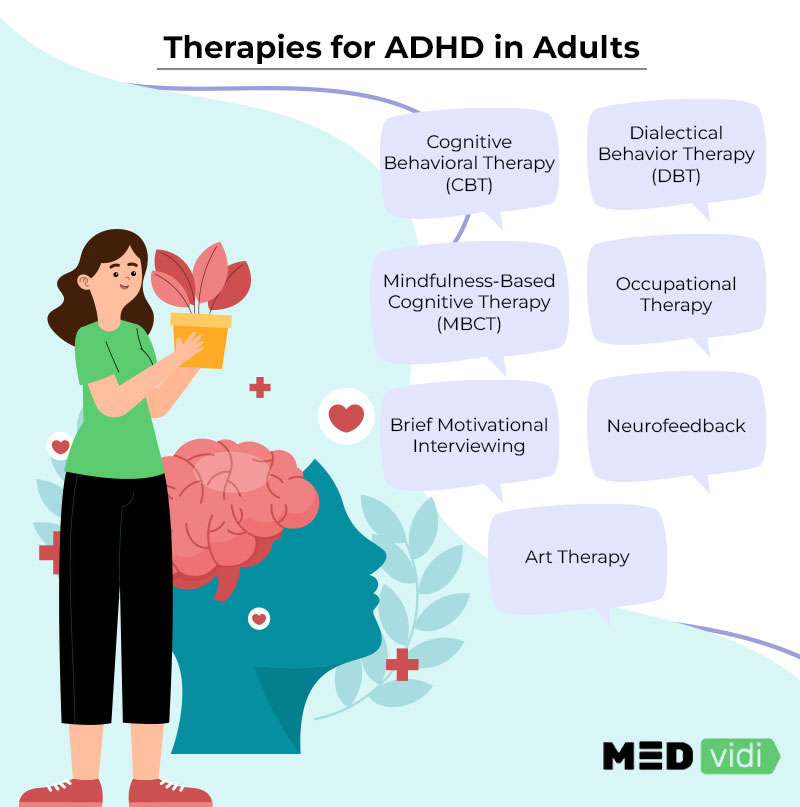Exploring Effective ADHD Treatment Alternatives for All Ages
The intricacies of Interest Shortage Attention Deficit Disorder Problem (ADHD) present one-of-a-kind obstacles across various age teams, requiring a comprehensive expedition of efficient treatment options. A combination of behavioral therapies, medicinal treatments, and way of living adjustments has actually revealed assurance in dealing with the varied demands of people with ADHD.
Comprehending ADHD and Its Effect
Attention-Deficit/Hyperactivity Problem (ADHD) is a neurodevelopmental problem identified by persistent patterns of negligence, attention deficit disorder, and impulsivity that can substantially impact various elements of a person's life. It normally manifests in youth, although signs and symptoms can linger into adulthood. The core signs of ADHD can interrupt academic efficiency, impede social interactions, and complicate work ventures.
Individuals with ADHD usually battle with maintaining focus on tasks, arranging activities, and following up on instructions, which can result in scholastic underachievement (Depression Treatment). In social contexts, impulsivity might lead to difficulties in developing and maintaining connections, as individuals might interrupt discussions or make hasty choices without taking into consideration effects
Additionally, ADHD can co-occur with other psychological health and wellness problems, such as anxiety and anxiety, better complicating medical diagnosis and therapy. The variability in signs and symptom presentation suggests that ADHD can affect individuals in different ways, requiring an individualized approach to management. Comprehending ADHD's complex impact is essential for creating effective techniques that sustain individuals in navigating daily challenges and achieving their potential. Comprehensive understanding of ADHD's nature and implications lays the groundwork for exploring ideal therapy alternatives tailored per person's requirements.
Behavioral Therapies for ADHD
Many behavioral treatments have been developed to effectively resolve the challenges related to ADHD, concentrating on changing particular habits and cultivating vital abilities. Among the most acknowledged techniques are cognitive-behavioral therapy (CBT), moms and dad training, and social skills training.
CBT assists people recognize and transform adverse thought patterns and habits, promoting a more positive overview and improved self-regulation. This therapy commonly includes functional approaches for taking care of impulsivity and boosting organization. Moms and dad training programs equip caregivers by furnishing them with methods to strengthen positive habits and established consistent borders, which can be specifically useful for youngsters with ADHD.
Social skills training is an additional crucial element, training people with ADHD just how to engage effectively with peers - Depression Treatment. This approach usually entails role-playing and comments to enhance communication, collaboration, and dispute resolution skills
Incorporating these behavioral therapies right into a thorough therapy strategy can dramatically boost functioning and top quality of life for individuals with ADHD. Inevitably, the effectiveness of these therapies depends on tailored techniques that take into consideration the distinct demands of everyone, thereby promoting strength and adaptability in life.
Drug Options Available
For many individuals with ADHD, medicine can play a considerable function in taking care of symptoms and boosting total performance. Both primary classifications of medicines recommended for ADHD are stimulants and non-stimulants.
Stimulants, such as methylphenidate and amphetamine-based medicines, are one of the most generally made use of therapies. These medicines work by enhancing the degrees of neurotransmitters, specifically dopamine and norepinephrine, in the brain, which aids enhance interest and minimize impulsivity and attention deficit disorder. They typically produce fast results, making them a recommended alternative for numerous people.

It is necessary for medical care service providers to perform a complete analysis to establish the most appropriate medication based on individual requirements, case history, and potential negative effects. Regular follow-up and monitoring are also essential to guarantee the effectiveness of the chosen treatment and article source to make any necessary adjustments.
Way Of Living Adjustments to Take Into Consideration
Taking care of ADHD efficiently extends beyond medication, as way of living adjustments can dramatically boost general health and signs and symptom control. Including organized routines is essential; consistent timetables assist individuals with ADHD manage their time efficiently and reduce sensations of bewilder.
Regular physical activity is an additional crucial component. Workout not only helps to boost concentration but additionally improves mood and lowers stress degrees. Tasks such as yoga or group sports can be particularly valuable, promoting both physical conditioning and social communication.
Nutrition additionally plays an essential role. Depression Treatment. A well balanced diet plan abundant in omega-3 fatty acids, entire grains, and lean healthy proteins can contribute to boosted focus and cognitive feature. Limiting sugar and refined foods is recommended, as these can worsen hyperactivity and impulsivity
Rest health is vital for taking care of ADHD symptoms. Establishing a normal sleep timetable and coping with depression creating a peaceful setting can enhance sleep high quality, bring about better focus and emotional regulation.
Alternative and Alternative Methods
Alternate and alternative techniques to ADHD therapy use a varied series of alternatives that enhance conventional methods. These approaches typically concentrate on lifestyle alterations, nutritional treatments, and therapeutic practices that aim to improve general wellness while attending to ADHD signs and symptoms.

Mindfulness and behavior modifications are also getting grip as all natural treatments. Practices psychiatric counseling such as yoga, meditation, and cognitive-behavioral treatment can cultivate self-regulation and enhance interest. These techniques sustain psychological strength, which is specifically beneficial for people with ADHD.
Organic supplements, such as ginkgo biloba and ginseng, are sometimes explored; however, it is important to seek advice from medical care specialists prior to integrating these right into therapy strategies. While choice and all natural techniques can give beneficial assistance, they must ideally be made use of in combination with evidence-based therapies to accomplish ideal results for managing ADHD across all ages.
Conclusion
In recap, efficient ADHD therapy requires a comprehensive technique that includes behavioral treatments, medicine, lifestyle adjustments, and holistic techniques. This complex technique emphasizes the importance of customized treatment in dealing with the varied needs of individuals with ADHD throughout all age groups.